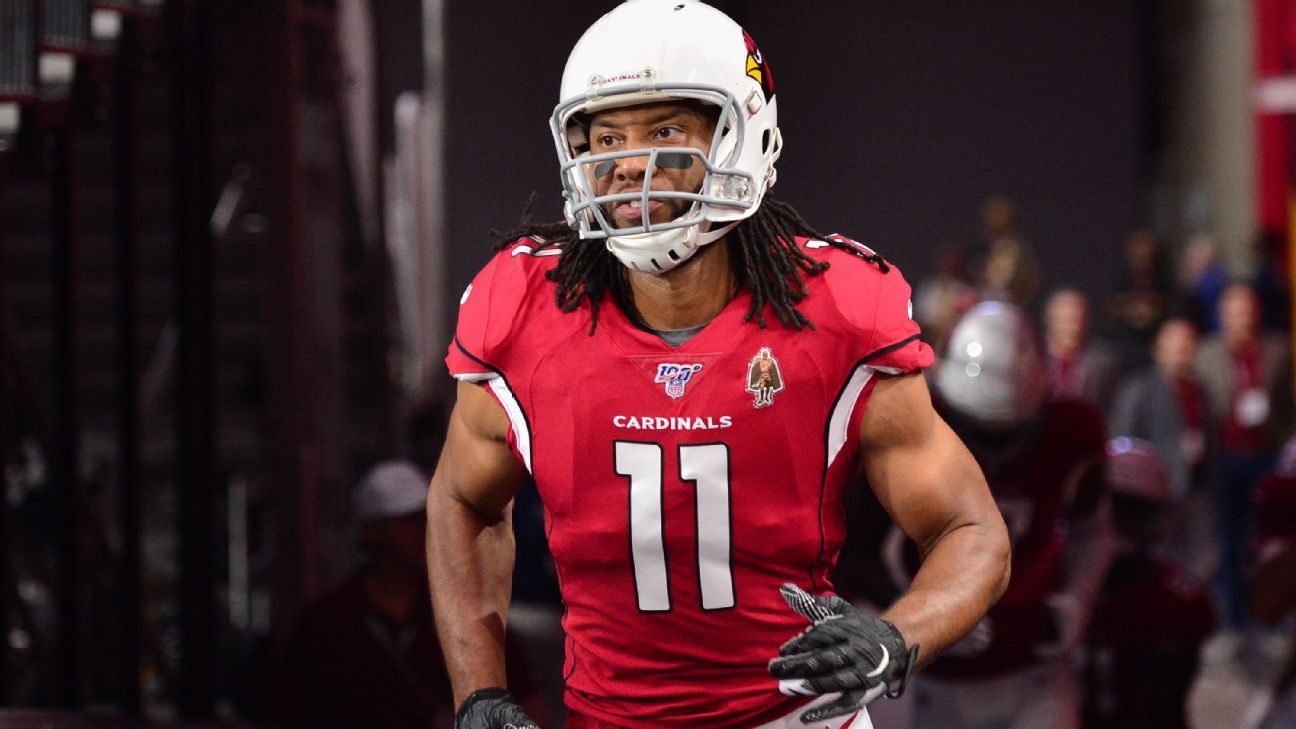
Arizona Cardinals wide receiver Larry Fitzgerald says the Minneapolis that is in turmoil following the death of George Floyd is not the city he grew up in, but he is hopeful that unheard voices will now be listened to in the wake of tragedy.
In an essay for The New York Times on Sunday, Fitzgerald shared his thoughts on the current situation in Minneapolis -- where Floyd, a black man, died May 25 while in police custody -- and racial injustice in the United States.
"The events of the last several days have turned Minneapolis, and our nation, upside down. Injustice, death, destruction, pain, violence, protests, and riots have made it clear -- we as a nation are not OK. We are not healthy," Fitzgerald wrote. "The violent death of George Floyd in police custody is yet another example of a systemic problem we have yet to solve. A cancer we are failing to cut out. People and communities are suffering, lives are being lost and futures are being destroyed."
Fitzgerald was born in Minneapolis and played high school football at the Academy of the Holy Angels before going to college at Pittsburgh and becoming a star wide receiver in the NFL with the Cardinals. His father, Larry Sr., is a journalist in Minneapolis.
Fitzgerald wrote that he never experienced harassment from the Minneapolis Police Department but did witness situations "where people of color were not given the same benefit of the doubt and the same respect that was afforded to others."
At the heart of America's racial turmoil is that people "are not listening to one another," he wrote.
"The screams of disrespected voices are ringing out in our nation right now," Fitzgerald wrote. "We must never condone violent riots that take lives and destroy futures but we must also hear the desperate voice of protest that is calling out for justice."
Fitzgerald also wrote that it is imperative that "leaders, elected officials, influencers and people in power must listen."
"We must refuse to allow the screams of the unheard to be disregarded," he wrote. "We must act. Good people may find themselves a part of a broken system but must take it upon themselves to bring about the needed change. If you are silent and passive you are complicit in upholding the status quo."
But Fitzgerald wrote that members of law enforcement that have spoken out against injustice also "deserve to be heard," adding "the unthinkable acts of some do not require that we paint the whole with broad brush strokes of hatred."
The first step in creating change "must be to listen to one another -- to sincerely lean in and hear what the person who is different from us is saying," he wrote.
Fitzgerald ended his essay by writing:
"George Floyd, in your final gasps for breath, we hear you.
"Breonna Taylor, in your besieged home, we hear you.
"Ahmaud Arbery, as your footsteps pounded the ground, running for your life, we hear you.
"Victims of violence, poverty and injustice, we hear you.
"Communities and lives torn apart by riots, we hear you.
"People of privilege learning a better way, we hear you.
"Mothers and fathers of every race doing the best you can to teach your children to love and not hate, we hear you.
"May God give us all ears to hear so that the cries of the unheard are never again compelled to scream in desperation."














 Phone: (800) 737. 6040
Phone: (800) 737. 6040 Fax: (800) 825 5558
Fax: (800) 825 5558 Website:
Website:  Email:
Email: 






